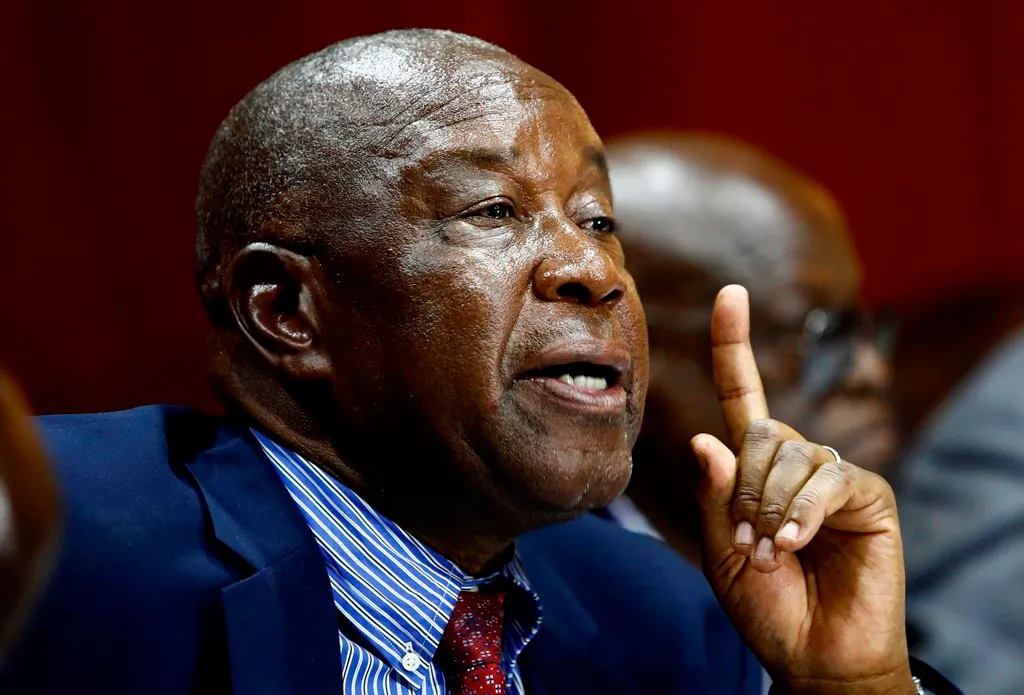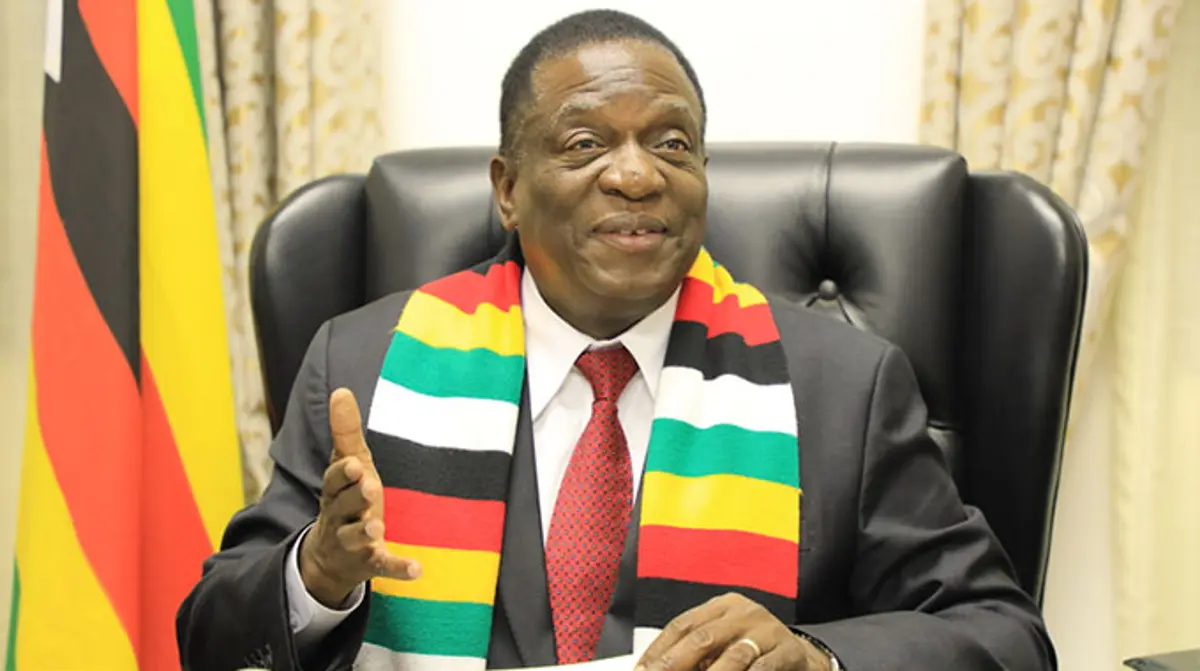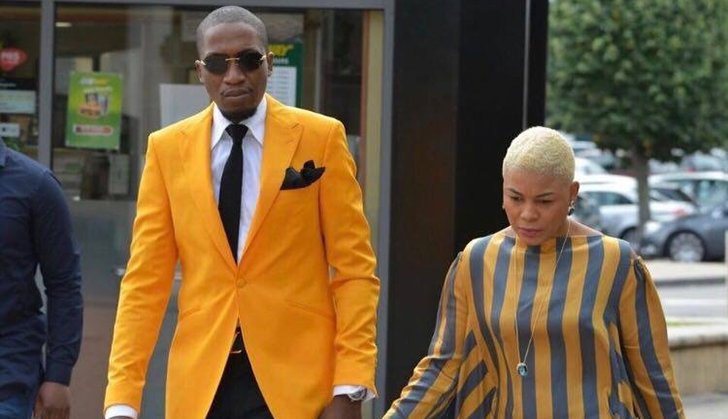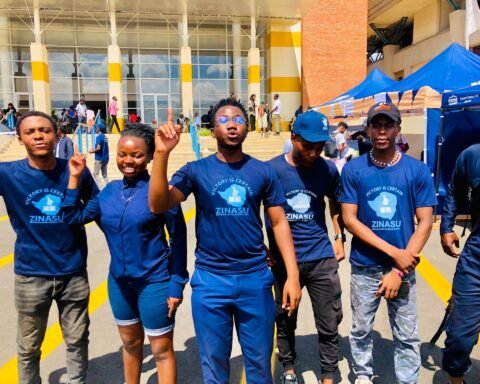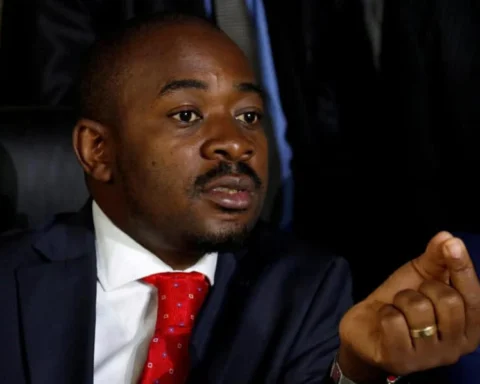At 93, President Robert Mugabe is reaching the twilight of his career and not even vote-rigging or abuse of state security apparatus can stop the inevitable.

BY XOLISANI NCUBE
The sobering reality is the reason the old topic of Mugabe’s succession is gaining currency even within Zanu PF, where discussing the aged ruler’s departure was akin to treason.
To oil the debate, The Standard this week looks at five people with a realistic chance of succeeding Mugabe as Zanu PF leader and possibly state president. We solicited the views of respected analysts.
Emmerson Mnangagwa
In an interview with state television to mark his 93rd birthday on February 21, Mugabe said he does not see any suitable successor within Zanu PF.
During his controversial birthday celebrations in Matobo a few days later Mugabe told his supporters to desist from discussing his succession after buying beer for their clique of friends.
The experienced political operator did not mention names but those that follow Zanu PF politics were quick to point out that he was referring to Vice-President Emmerson Mnangagwa.
Mnangagwa boasts that he has been with Mugabe for over 52 years and for sometime his supporters believed that he was the anointed successor, especially after the brutal purge that swept away Joice Mujuru.
Having served as state security minister during the formative years of an independent Zimbabwe, Mnangagwa has been linked to the Gukurahundi massacres that, according to human rights activists, resulted in the death of more than 20 000 people in Matabeleland and Midlands provinces.
Despite having to relegate him to the backyard of national politics in 2004 when the Midlands’ godfather was accused of plotting a coup against Mugabe, the VP and his boss have stood with each other in times of need.
When Mugabe lost the 2008 elections to his long-time rival, Morgan Tsvangirai of MDC-T, Mnangagwa as the chief election agent stood by him, forcing a run-off that ultimately gave Mugabe an opportunity to cling on to power.
But, that was until recently when the president decided to crash-land his wife, Grace into mainstream politics, resulting in the boat that had been cruising smoothly hitting rough waves.
Respected political analyst Ibbo Mandaza believes Mnangagwa’s chances of being anointed by Mugabe are next to nill despite the sacrifices he has made over the years.
“He is a lame duck and the powers-that-be have made it clear that they don’t want him,” Mandaza said.
“He has tried it [to land the top post] for too long and I think even his soul has reached a point of saying, ‘I am tired’.”
However, University of Zimbabwe political science lecturer, Eldred Masunungure puts Mnangagwa as the front-runner in the race based on his “strong relationship with the military and his experience in carrying out delicate national assignments”.
“Because of his strong relationship with the military — that seems to have veto power on what happens in Zanu PF — he is likely to win it,” he said.
“If you look at the power matrix in Zanu PF, the military has a bigger say than the party.
“So anyone who would succeed Mugabe should pass the vote of the military.
“This is where Mnangagwa has an advantage over many [who are] said to be contenders to the throne.”
“Also, he has been associated with national assignments that include dealing with elections and ensuring Mugabe wins. This is another major plus for him.”
Masunungure said unlike Mujuru, who fell out of favour with Mugabe and was kicked out of Zanu PF, Mnangagwa was not a pushover.
He said the only thing that could stop the VP from taking over from Mugabe was that he was not popular among voters.
“If you look at his national profile when it comes to elections, he has a lot of work to do to ensure that he undoes the history of losing elections,” Masunungure said.
Alexander Rusero, a Harare-based political analyst said Mnangagwa had the pedigree to land the post given his brevity and experience on national affairs.
“If it is true that he commands respect in the security forces in Zimbabwe — the biggest power broker for Zanu PF — then he is at the epicentre of the corridors of power,” he said.
“His dramatic ascendancy to the vice-presidency is to a greater extent an indicator of calculative power-scheming.
“However, the adage that so-near-yet-so far applies when we try to assess the feasibility of Mnangagwa taking over.
“Like everyone else in Zanu PF, Mnangagwa is serving at the mercy of Mugabe, and he is not invincible or expendable, meaning he could be demoted anytime, it happened to him twice.
“First, it was after he lost a parliamentary seat to Blessing Chebundo and was appointed Speaker of Parliament and secondly, by being appointed minister of a not so influential post of Rural Amenities.”
Grace Mugabe
Mugabe’s wife does not hide her political ambitions but has been blowing hot and cold since she entered politics a few years ago.
Her first task was to obliterate Mujuru before she tried to have a go at Mnangagwa. In the ZTV interview, Mugabe claimed his wife had been well-received by Zimbabweans.
Mandaza believes she is “the power behind Mugabe’s reign”.
“She does not need to be the president to enjoy authority and power, she is there already,” he said.
“In the succession matrix, her role would be to choose the next person she wants to be the leader of Zanu PF who will serve her interests first and ensure her family’s legacy is protected.”
Masunungure said Grace was not a serious contender for the presidency.
“It’s you the media who are giving her that hope; she is nowhere near real politics,” he said.
“I am talking about people who have the political gravitas, not people who are a creation of the media.”
Rusero sees it differently and believes those ruling Grace out of the race could be missing the point.
“She resides within the sanctuary of Zanu PF power in the form of her husband,” he said.
“Her proximity to power is the greatest leverage she uniquely wields.
“However, the greatest disadvantage Grace has is lack of real power, the borrowed power she wields is reliant on Mugabe’s presence, longevity in power as well as survival.
“Moreover, the Grace Mugabe brand is heavily tainted, a lot has to be done to spruce up that brand both at a local and international scale.
Sidney Sekeremayi
While focus has been placed on Mnangagwa and Grace, some in Zanu PF believe Defence minister Sydney Sekeramayi is the dark horse in the race.
Masunungure also shares the same belief, saying the minister had a wealth of experience gained from assignments given to him by Mugabe since 1980.
“He has held critical ministries that have to do with the management of the country,” he said.
“He has kept himself away from the factional fights within the party and has a workable relationship with the military so he is a real dark horse.”
Sekeramayi has headed the Lands and Rural Resettlement, Health, State Intelligence and Defence portfolios.
He has also been in the Zanu PF politburo since independence.
According to Masunungure, his major undoing is that he lacks national appeal.
“The president will need massive marketing of Sekeramayi. He lacks that national outlook for a national leader,” he said.
“Probably as the Shona proverb says ‘mugoti unopiwa anyerere’ [the prize is given to the one who is silent], he is the real dark horse to talk about.”
At the height of Gukurahundi, Sekeramayi was in charge of defence and oversaw the training of Five Brigade, a specialised military wing that carried out the mass killings.
Mandaza believes Sekeramayi has no chance given the statements made by Grace at her recent rally in Buhera that all Zanu PF officials who joined government in 1980 should retire together with Mugabe when he steps down.
“He has no gravitas to challenge the system and be counted in the system,” he said. “He is just a shadow of his aspired glory…no! no! no! He has no spine to talk about, he is nowhere near the list.”
Rusero believes that Sekeramayi is a dark horse whose prospects of springing a surprise cannot be dismissed.
“He is diplomatically tactful and has never exhibited any characteristics of one harbouring presidential ambitions,” he said.
Saviour Kasukuwere
Apart from the three, some in Zanu PF view the party’s political commissar Saviour Kasukuwere as a potential successor to Mugabe.
Masunungure said Kasukuwere’s major trump card would be his popularity within party structures and his closeness to Mugabe.
“But it seems he does not have a good relationship with the military. That would be his challenge,” he said.
Mandaza dismissed Kasukuwere as a novice in Zanu PF’s cutthroat politics.
“He has no gravitas to talk about,” he said.
Rusero refused to rule out Tyson, as Kusukuwere is known in Zanu PF circles, because of his aggressive nature.
“He has proved not to be a political novice, given his ascendancy into the top structures of Zanu PF through his recent appointment as commissar,” he said.
Gideon Gono
The former central bank governor Gideon Gono’s name has also been thrown around in the Mugabe succession debate.
But Masunungure said Gono was not known in Zanu PF and his chances were slim.
“He is not a known member in Zanu PF, he lacks the support base,” he said.
Mandaza shared Masunungure’s views saying “he has no gravitas to talk of. He is nowhere near the race”.
Rusero still refused to rule Gono out of the race.
“He is a presidential contender who is known for diplomacy,” he said.
“He has stayed clear of the on-going factional web. He also has an appeal to the business community given his reformist approach to the economy during his last days as RBZ governor, especially during the period of the government of national unity.
“Mugabe has a tendency of showing gratitude to those who come to his rescue.”
According to the Constitution, if Mugabe wins the next elections he would serve his final five-year term.


